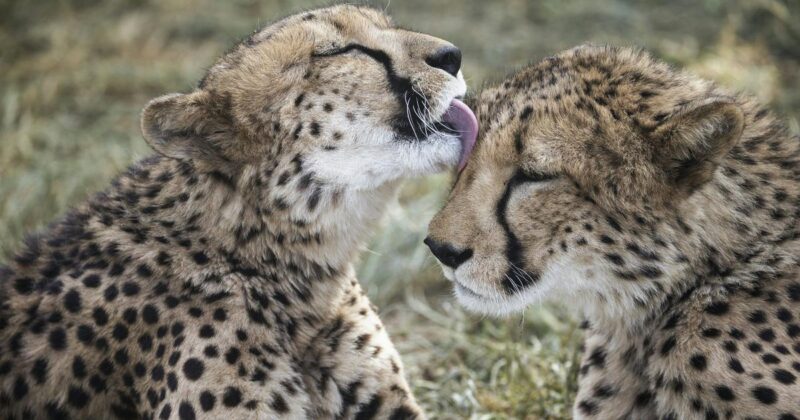rajkotupdates.news:cheetah-magnificent-but-fragile-experts-list-concerns-for-cheetahs: The cheetah (Acinonyx jubatus) is an iconic and charismatic species known for its incredible speed and agility. However, this magnificent big cat is facing numerous challenges to its survival. In this article, we will explore the insights provided by conservation specialists regarding the threats that cheetahs currently face in the wild. By understanding these challenges, we can work towards implementing effective conservation strategies to ensure the long-term survival of this endangered species.
Also Read: rajkotupdates.news : youtuber carryminati appointed as winzo brand ambassador
Habitat Loss and Fragmentation
One of the primary threats to cheetah survival is habitat loss and fragmentation. As human populations expand and land is converted for agriculture, infrastructure development, and urbanization, the cheetah’s natural habitat is being rapidly destroyed. This loss of suitable habitat restricts the cheetah’s range, reduces their access to prey, and increases the likelihood of human-wildlife conflicts. Conservation specialists emphasize the need to protect and connect remaining cheetah habitats to maintain viable populations and enable genetic exchange.
Poaching and Illegal Wildlife Trade
Cheetahs are highly prized for their beautiful fur, and their cubs are often captured and sold as exotic pets. Poaching and illegal wildlife trade pose a significant threat to cheetah survival. Conservation specialists highlight the importance of strengthening anti-poaching efforts and increasing law enforcement to combat this illegal trade. Additionally, raising awareness about the conservation implications of keeping cheetahs as pets is crucial to reduce demand and discourage potential buyers.
Conflict with Humans and Livestock
As cheetahs’ natural prey becomes scarce due to habitat loss and fragmentation, they are forced to hunt livestock, leading to conflicts with local communities. In retaliation, farmers may kill cheetahs to protect their livestock. Conservation specialists advocate for the promotion of coexistence strategies, such as the use of predator-proof enclosures for livestock and compensation programs for farmers who experience losses. By addressing the concerns of local communities and providing them with incentives to protect cheetahs, it is possible to mitigate conflicts and foster positive attitudes towards coexisting with this magnificent predator.
Also Read: rajkotupdates.news : youtuber carryminati appointed as winzo brand ambassador
Genetic Inbreeding and Population Decline
With the cheetah population becoming increasingly fragmented, genetic inbreeding becomes a serious concern. As cheetahs are restricted to smaller habitats, they are more likely to mate with close relatives, leading to reduced genetic diversity and increased susceptibility to diseases. Conservation specialists stress the importance of establishing protected corridors to facilitate gene flow between isolated populations. Additionally, captive breeding programs and reintroduction efforts can help augment genetic diversity and bolster wild populations.
Conclusion
Conservation specialists play a vital role in identifying and addressing the threats that cheetahs face in the wild. By understanding the challenges of habitat loss and fragmentation, poaching, conflicts with humans, and genetic inbreeding, targeted conservation strategies can be developed and implemented. Collaborative efforts between governments, local communities, non-governmental organizations, and researchers are essential for protecting the remaining cheetah populations and securing their long-term survival. Through these initiatives, we can hope to ensure a future where cheetahs can roam freely in their natural habitats and continue to inspire awe and wonder in generations to come.

